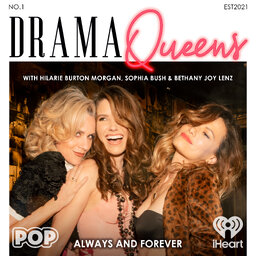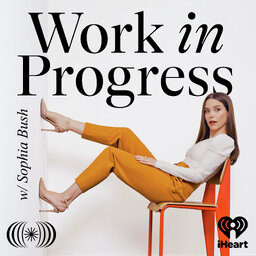Work in Progress: Carrie Preston
From a small-town girl doing plays as an 8-year-old in Macon, Georgia, to being a leading lady on her own hit TV show! Carrie Preston shines as 'Elsbeth Tascioni' in one of CBS' most successful dramas, a show she thought would never see the light of day!
Carrie Preston is opening up to Sophia about reprising the Emmy-winning role of 'Elsbeth,' which viewers first saw on the small screens 15 years ago in "The Good Wife," and what it's like playing a woman of a certain age reinventing herself. She also shares her journey to becoming an actress, director, and producer and using her platform for good.
 Work in Progress with Sophia Bush
Work in Progress with Sophia Bush



